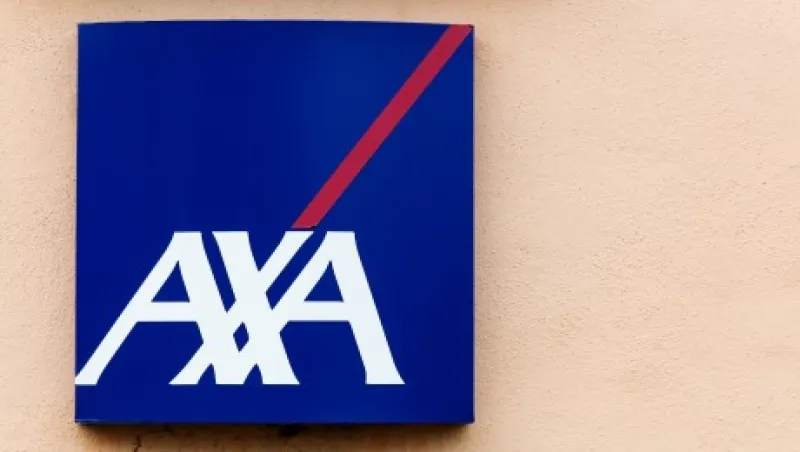Foreign fund managers that have long dreamed of getting access to the vast domestic Chinese market are about to get a chance to show off their financial wizardry.
At the end of June, regulators in Beijing unveiled a package of financial reforms that will allow global asset managers to establish wholly owned entities on the mainland to invest in the nation’s $10 trillion capital market on behalf of Chinese institutional investors and wealthy private clients. The initiative arguably represents the most dramatic and potentially lucrative of a series of moves to liberalize China’s financial markets in recent years. Until now, foreign firms have mostly been limited to minority stakes in mainland joint ventures with Chinese managers, but the new reforms will wipe away those restrictions.
“This is probably one of the most defining changes in the financial services regime I have ever seen,” says Peter Alexander, the managing director of Shanghai-based Z-Ben Advisors, a research house that tracks China’s asset management industry.
Success is far from guaranteed, though. China’s asset management industry has become increasingly sophisticated both in managing funds and in raising assets with e-commerce marketing strategies. Foreign managers seeking to grab a share of the nation’s $6 billion–plus asset management industry will have to invest heavily to compete, say market experts.
“It’s the panacea, but no one that I am aware of is prepared for this move,” says Alexander. Many foreign firms will probably need time to examine the new regulations and consider their strategies. “The issue is, How are you going to execute? How many people on the mainland know your brand?” he says. “There is a lot of wood that has to be chopped to get from here to having a successful business onshore.”
Notwithstanding the uncertainty, at least one foreign firm — AXA Investment Managers, the €666 billion ($738 billion) asset management arm of French insurer AXA — has already begun the process to apply for a license to establish a wholly owned subsidiary in Shanghai’s Lujiazui Free-Trade Zone. Cheng Liao, executive director for Asia business development at the firm, says the new unit would complement AXA IM’s existing retail joint venture with Shanghai Pudong Development Bank and Guosheng Asset Management. AXA IM owns 39 percent of the venture.
“We expect great opportunities from the development of the alternatives and the credit market in China,” Cheng says. “The wholly owned foreign entity will also leverage the joint venture’s distribution capability to introduce and provide AXA IM’s solutions to Chinese institutional and high-net-worth investors for their overseas investments.”
Others are holding back. Investec Asset Management welcomes the latest Chinese move as a step toward greater liberalization but doesn’t plan to set up a mainland subsidiary because the new regime still imposes some restrictions on foreign firms, says Hendrik du Toit, CEO of the $109 billion London-based manager. “It’s not as if you open an office in the U.K. or something,” he adds.
The latest liberalization applies to the management of mainland stocks and bonds for Chinese institutions and high-net-worth clients, a market worth some $2.5 trillion, according to Z-Ben Advisors. It does not allow foreign firms to manage funds for domestic retail investors, a $3.7 trillion market. Nor does it affect the management of offshore assets for Chinese clients, which foreign and domestic firms currently do under quota programs, such as the Qualified Foreign Institutional Investor and Qualified Domestic Institutional Investor regimes.
Open access has long been a goal of foreign firms and China’s major trading partners, but the announcement, which came just a few weeks after top U.S. and Chinese officials met in Beijing for the eighth U.S.-China Strategic and Economic Dialogue, caught industry executives by surprise. Many foreign executives had begun to question Beijing’s commitment to financial liberalization following a sharp plunge in Chinese stock prices last year and clumsy efforts by regulators to manage the volatility. But opening up the domestic market to foreign asset managers could add depth and stability to mainland markets and help counter the large capital outflows that China has experienced over the past year.
Chinese authorities had already been easing restrictions on foreign managers. Last October U.K.-based Aberdeen Asset Management and Boston-based Fidelity Investments got the green light to set up wholly foreign-owned subsidiaries in China, and in March 2016, Westport, Connecticut–based hedge fund firm Bridgewater Associates received permission to set up shop in the country. The authorities also opened the Shanghai stock market to direct investment by Hong Kong–based firms through the Stock Connect program, introduced in November 2014.
To take advantage of the new opening, foreign managers must be free of any regulatory sanctions, Chinese or otherwise, for at least three years and be based in nations that have trade and financial agreements with China. Firms must base their Chinese corporate entities in the Shanghai Free-Trade Zone, an area established in September 2013 that gives firms quota-free access to foreign exchange.
The new rules do not affect the 44 joint ventures that foreign asset managers have established with Chinese partners. Some of these firms have established leading market positions. Harvest Fund Management Co., the country’s third-largest fund manager, with $90 billion in assets as of March 31, 2015, is 30 percent owned by Deutsche Bank’s asset management arm. Several other joint ventures figure prominently in the 2015 China 20, Institutional Investor’s ranking of the country’s top asset managers, including eighth-ranked ICBC Credit Suisse Asset Management Co. and No. 10, Bank of Communications Schroder Fund Management Co.
Alexander of Z-Ben Advisors says the competitive impact of the new liberalization is unclear. “You can argue the foreigners coming in will be sidelined, much like they are sidelined in insurance, banking and securities,” he says. On the other hand, he adds, many Chinese investors have shown little brand loyalty: “If you can come up a compelling invest process that generates decent returns, that would be a killer app. Performance matters, full stop, in China.”
Hubert Tse, a Shanghai-based legal adviser to foreign hedge funds, says the new market opening will beckon many global hedge funds to China. “This is encouraging news, as qualified foreign hedge funds and asset managers can run money in China, raising funds from Chinese investors onshore, and launch funds to invest in A shares in the China market,” says Tse, a partner at law firm Boss & Young. “This announcement shows that Chinese regulators are committed to further opening up of the financial markets and developing the asset management industry and hedge fund markets — despite poor market performance, continued depreciation in the renminbi and anticipated fund outflows.”
In 2013 the authorities allowed six hedge fund firms, including New York–based Och-Ziff Capital Management Group, Chicago-based Citadel and London-based Man Group, to set up subsidiaries in Shanghai and invest up to $50 million for Chinese clients under its Qualified Domestic Limited Partner program. Last year the government approved five more foreign firms, including UBS Global Asset Management and Deutsche Asset & Wealth Management, to open Shanghai outlets under the QDLP program with investment quotas of $100 million each.
Follow Allen Cheng on Twitter at @acheng87.






